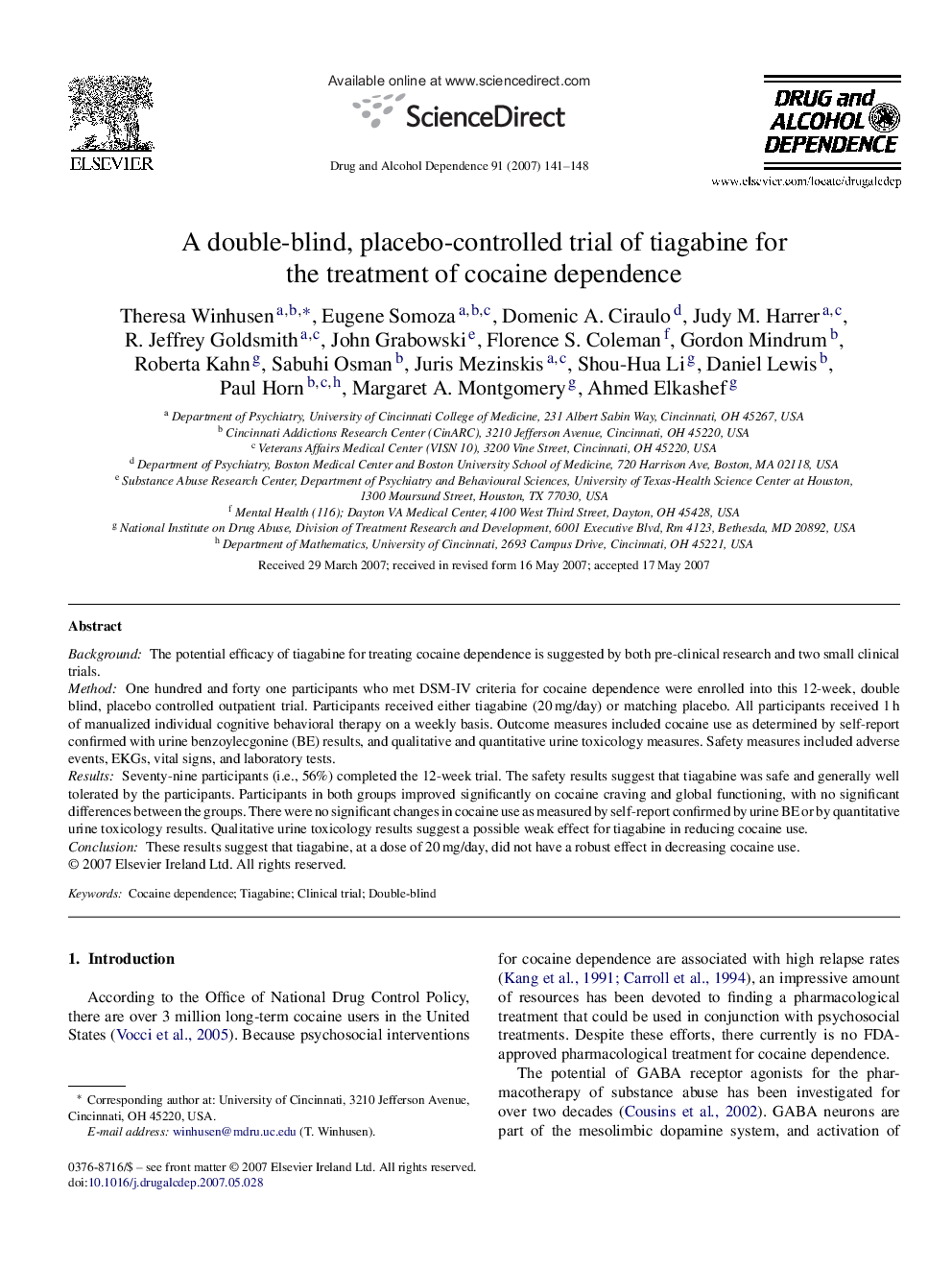| Article ID | Journal | Published Year | Pages | File Type |
|---|---|---|---|---|
| 1071169 | Drug and Alcohol Dependence | 2007 | 8 Pages |
BackgroundThe potential efficacy of tiagabine for treating cocaine dependence is suggested by both pre-clinical research and two small clinical trials.MethodOne hundred and forty one participants who met DSM-IV criteria for cocaine dependence were enrolled into this 12-week, double blind, placebo controlled outpatient trial. Participants received either tiagabine (20 mg/day) or matching placebo. All participants received 1 h of manualized individual cognitive behavioral therapy on a weekly basis. Outcome measures included cocaine use as determined by self-report confirmed with urine benzoylecgonine (BE) results, and qualitative and quantitative urine toxicology measures. Safety measures included adverse events, EKGs, vital signs, and laboratory tests.ResultsSeventy-nine participants (i.e., 56%) completed the 12-week trial. The safety results suggest that tiagabine was safe and generally well tolerated by the participants. Participants in both groups improved significantly on cocaine craving and global functioning, with no significant differences between the groups. There were no significant changes in cocaine use as measured by self-report confirmed by urine BE or by quantitative urine toxicology results. Qualitative urine toxicology results suggest a possible weak effect for tiagabine in reducing cocaine use.ConclusionThese results suggest that tiagabine, at a dose of 20 mg/day, did not have a robust effect in decreasing cocaine use.
